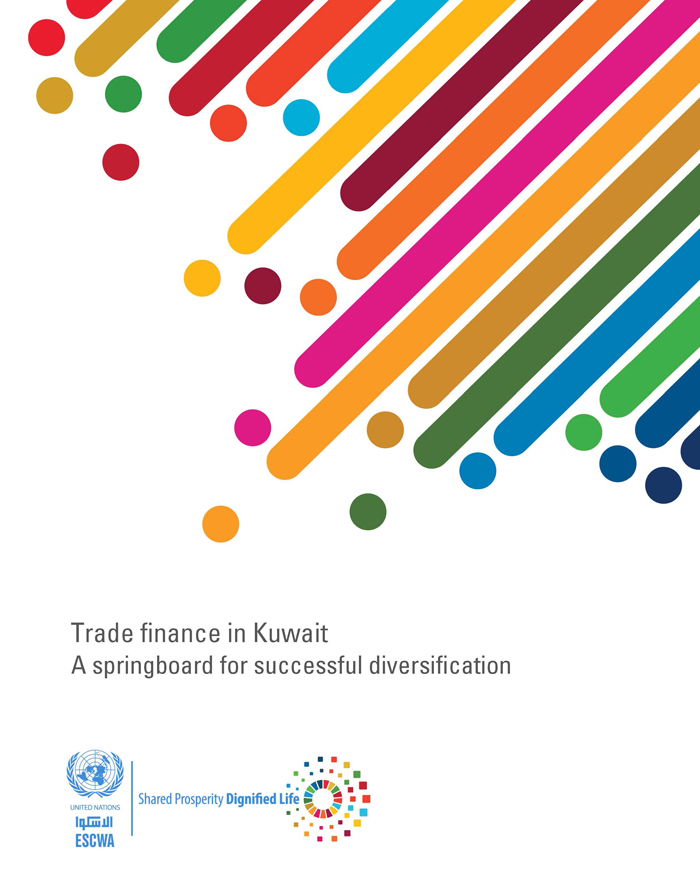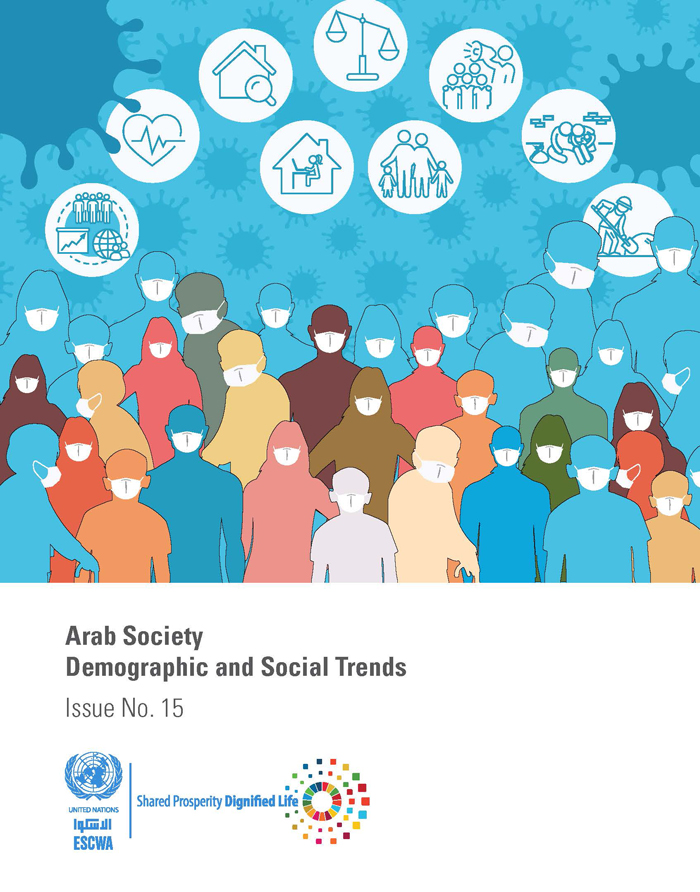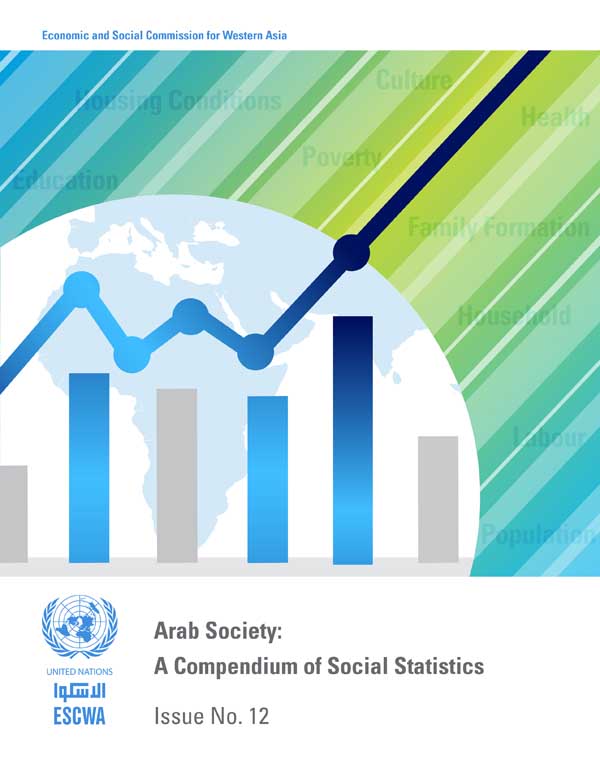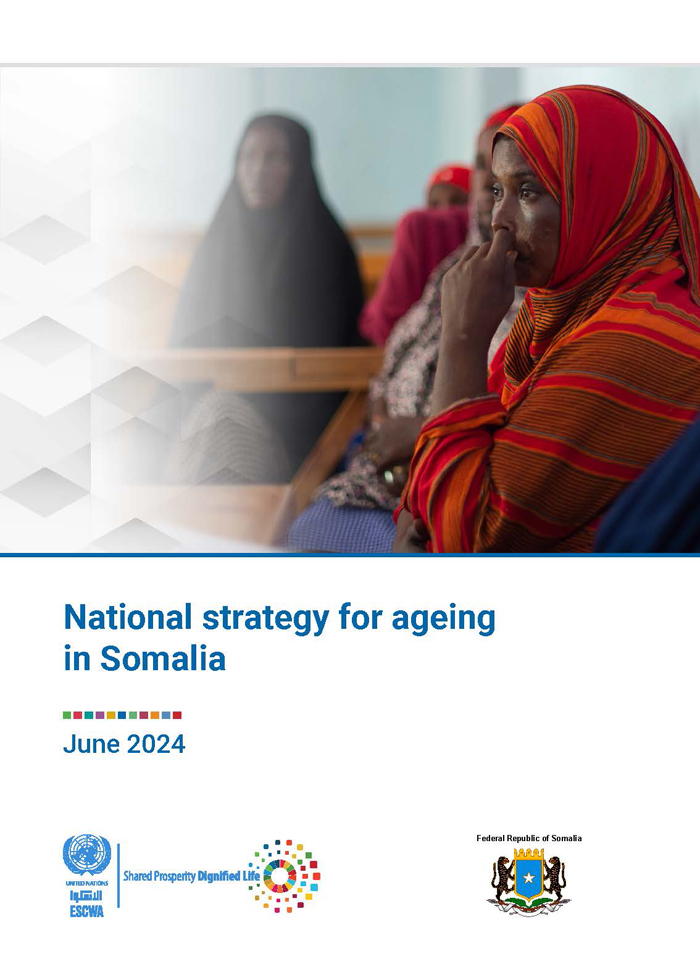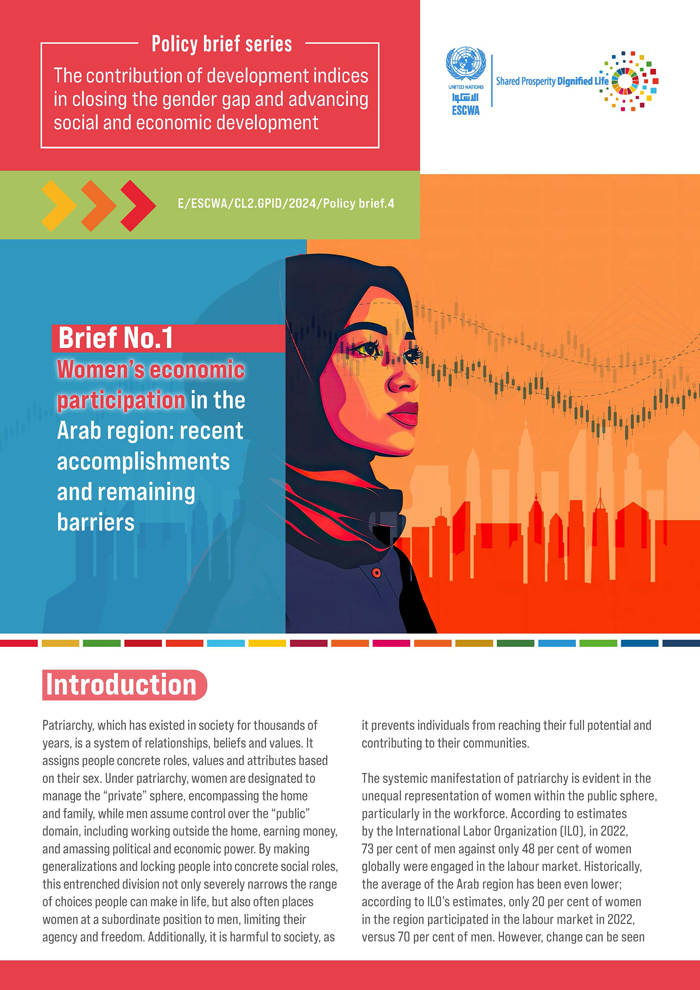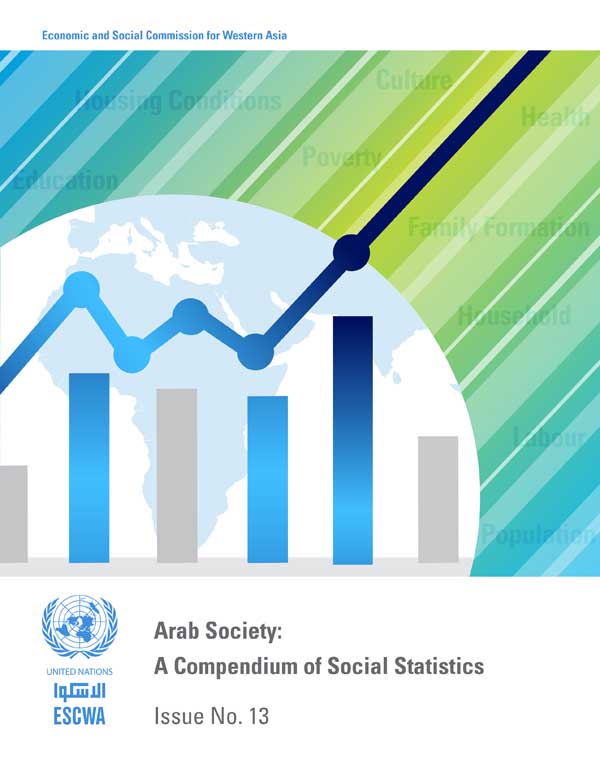
ESCWA Publication: E/ESCWA/SD/2017/5
Publication Type: Reports & studies
Publication Subject: Arab Society: A Compendium of Social Statistics
Cluster: Statistics, Information Society and Technology
Focus Area: Inclusive development, Statistics
SDGs: Goal 1: No Poverty
Keywords: Culture, Demography, Education, Employment, Health, Housing conditions, Population, Poverty, Social statistics
Arab Society: A Compendium of Demographic and Social Statistics, No. 13
January 2019
Arab Society: A Compendium of Social Statistics, Issue No. 13 is the latest in a series of biennial compendiums of the Statistics Division of the Economic and Social Commission for Western Asia (ESCWA). It provides a general view of Arab society in the region and the changes it has known over time. Drawing on data provided mainly from national statistical offices (NSOs), it focuses on issues of population, labour, housing conditions, education, poverty, health and culture. Each issue of the Compendium focuses on a single theme; the twelfth issue concentrates on household composition and family formation.
Data were drawn primarily from NSOs of ESCWA member States and supplemented by publicly accessible data from international agencies, such as the International Labour Organization, World Health Organization, United Nations High Commissioner for Refugees, United Nations Educational, Scientific and Cultural Organization, and the World Bank. Not all available indicators are displayed in the body of this publication. A more exhaustive set of tables can be found on the ESCWA website.
Related content
Inclusive development
, Statistics
,
Arab Society: A Compendium of Social Statistics, Issue No. 13 is the latest in a series of biennial compendiums of the Statistics Division of the Economic and Social Commission for Western Asia (ESCWA). It provides a general view of Arab society in the region and the changes it has known over time. Drawing on data provided mainly from national statistical offices (NSOs), it focuses on issues of population, labour, housing conditions, education, poverty, health and culture. Each issue of the Compendium focuses on a single theme; the twelfth issue concentrates on household composition and family formation.
Data were drawn primarily from NSOs of ESCWA member States and supplemented by publicly accessible data from international agencies, such as the International Labour Organization, World Health Organization, United Nations High Commissioner for Refugees, United Nations Educational, Scientific and Cultural Organization, and the World Bank. Not all available indicators are displayed in the body of this publication. A more exhaustive set of tables can be found on the ESCWA website.
